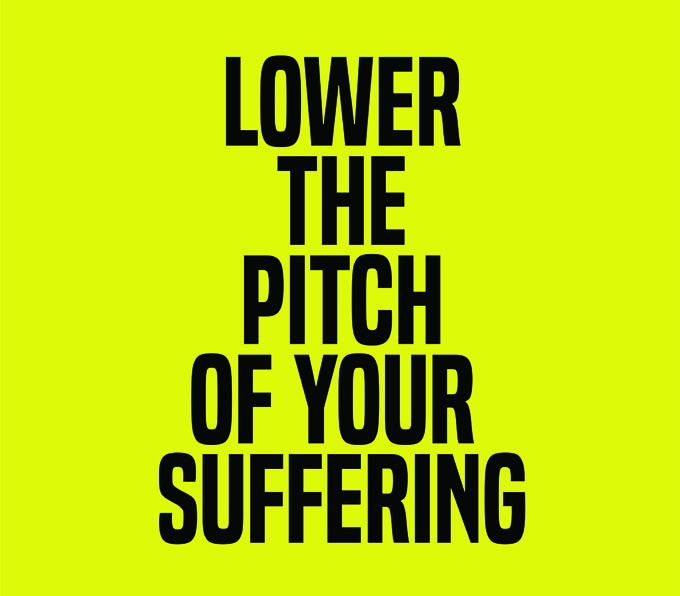
Kameelah Janan Rasheed. From the series, How to Suffer Politely (and Other Etiquette), 2014- , Digital C-Print.
I have four Black brothers, and I call them every day to confirm that they are not yet dead.
This macabre ritual takes place somewhere between the 7pm run of Jeopardy and my bedtime chamomile tea. In measured speech we pretend that we are regular people without routinized fears of an eventual death at the hands of someone who fears the cadence of our speech or our gait. We skate through the preamble, banter about pets and Facebook memes, then ease into the meat.
For Black people to be seen as worthy of empathy, they must be exemplary and angelic, nothing ambiguous or messy.
“How was your day?” I ask. One brother chuckles and says, “Well, no one shot me, so I think it’s been a good day. But you know, there are still a few hours left.” My staccato laugh fills the awkward silence. I fear not only that my brothers will be killed but that their limp bodies will never elicit empathy; Black people killed by law enforcement or deputized whites rarely do, and this normalizes and perpetuates the violence.
Because for Black people to be seen as victims and worthy of empathy, they must be exemplary and angelic. Free of blemish, nothing ambiguous or messy.
Trayvon Martin was deemed undeserving because his autopsy revealed that he had used marijuana. Sandra Bland was too assertive. Tamir Rice, a child, should not have been playing with a toy gun. Michael Brown was a “thug”, Freddie Gray the offspring of drug addicts.
The “perfect victim” narrative leaves fallible human beings hemmed in by the impossibility of innocence and the eventual reveal of their complicated humanity. Instead of focusing on healing and getting justice, a family must create a dutiful postmortem image that allows their child to be memorialized. It must be suffocating to wage a public relations campaign to assert humanity.
The “perfect victim” narrative is not just suffocating; it’s dangerous, creating the ideal conditions for rampant and repeated abuse of Black bodies, particularly those of Black women. Consider the recent case of former Oklahoma City police officer Daniel Holtzclaw, who is now facing 263 years in prison for 18 counts of rape, sexual battery and forcible oral sodomy.
Performing perfect victimhood demands that we suffer politely and not call attention to the systems that weigh on our daily lives.
Holtzclaw methodically preyed on poor Black women with criminal histories because he understood the matrix of gendered perfect victimhood and anti-Blackness that would discourage these women from coming forward and preclude them from being believed. Even in the court proceedings, the defense attorney sought to use the criminal backgrounds of some victims to cast doubt on their testimony. As prosecutor Lori McConnell said in closing arguments, “He didn’t choose CEOs or soccer moms … he counted on the fact no one would believe them and no one would care.” Said one survivor in court: “I didn’t think anyone would believe me. I’m a black female.”
These crimes and deaths are further normalized by their digital echo, through looped videos. Black bodies repeatedly tumbling to the ground and bullet-riddled Black bodies lying on cement are not reminders of crisis; they become, rather, the oft-overlooked wallpaper. This all takes a toll; this is why the Movement for Black Lives insists on being seen – because it’s being a flawed human like everyone else, not being an angel, that should give our lives the value they’re regularly denied.
Performing perfect victimhood demands that we suffer politely and not call attention to the systems that weigh on our daily lives. The violence is not only the police murder or the police rape; it is also the expectation of silence, cooperation and smiling after the harm. We will no longer suffer politely.
This piece, commissioned by Creative Time Reports, has also been published in The Guardian.

